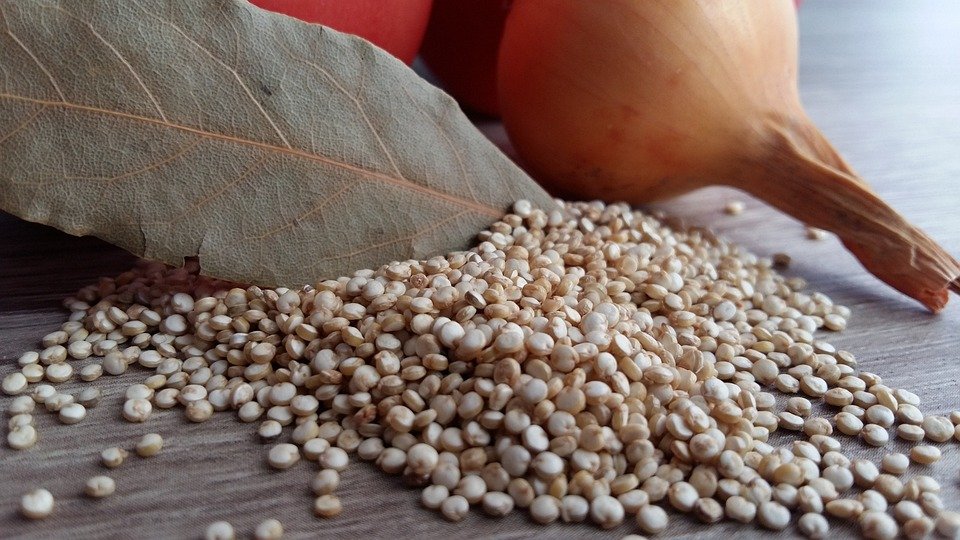Maintaining a healthy diet is crucial for our overall well-being. The food we eat plays a significant role in providing our bodies with the necessary nutrients to function properly and stay healthy. Incorporating superfoods into our diet can help boost our immune system, improve digestion, and promote optimal health. Superfoods are nutrient-dense foods that are packed with vitamins, minerals, antioxidants, and other essential nutrients that offer numerous health benefits. In this article, we will discuss 10 superfoods to add to your diet for optimal health.
1. Blueberries
Blueberries are considered one of the top superfoods due to their high antioxidant content. Antioxidants help protect our cells from damage caused by free radicals, which can lead to various health problems, including chronic diseases. Blueberries are also rich in vitamin C, vitamin K, and fiber, making them an excellent addition to your diet. You can enjoy blueberries on their own as a snack, or add them to smoothies, oatmeal, or yogurt.
2. Spinach
Spinach is a nutrient powerhouse that is loaded with vitamins and minerals such as vitamin A, vitamin C, vitamin K, iron, and magnesium. It is also rich in antioxidants and fiber, making it an excellent food for promoting optimal health. Spinach can be added to salads, smoothies, soups, and stir-fries to boost your nutrient intake.
3. Salmon
Salmon is a fatty fish that is rich in omega-3 fatty acids, which are essential for heart health and brain function. Omega-3 fatty acids have anti-inflammatory properties and can help reduce the risk of heart disease, stroke, and other chronic conditions. Salmon is also a good source of protein, vitamin D, and B vitamins. Include salmon in your diet at least twice a week to reap its health benefits.
4. Quinoa
Quinoa is a gluten-free whole grain that is packed with protein, fiber, and essential nutrients like iron, magnesium, and zinc. It is also a complete protein, meaning it contains all nine essential amino acids that our bodies cannot produce on their own. Quinoa is a versatile ingredient that can be used in salads, soups, stir-fries, and as a substitute for rice or pasta.
5. Avocado
Avocado is a unique superfood that is rich in healthy fats, particularly monounsaturated fats, which can help lower cholesterol levels and reduce the risk of heart disease. Avocado is also a good source of fiber, vitamin K, vitamin E, and potassium. You can enjoy avocado on toast, in salads, as a spread, or in smoothies.
6. Chia Seeds
Chia seeds are tiny seeds that are packed with fiber, protein, omega-3 fatty acids, and antioxidants. They can help improve digestion, promote weight loss, and reduce inflammation. Chia seeds are easy to incorporate into your diet by adding them to smoothies, oatmeal, yogurt, or baked goods.
7. Sweet Potatoes
Sweet potatoes are a nutrient-dense root vegetable that is rich in beta-carotene, vitamin C, vitamin B6, and fiber. They are also a good source of antioxidants that can help protect our cells from damage and reduce the risk of chronic diseases. Sweet potatoes can be roasted, mashed, or baked and enjoyed as a side dish or main course.
8. Kale
Kale is a leafy green vegetable that is packed with vitamins A, C, and K, as well as minerals like calcium and magnesium. It is also rich in antioxidants and fiber, making it a superfood that can help boost your immune system, improve digestion, and support overall health. Kale can be used in salads, soups, smoothies, and stir-fries.
9. Walnuts
Walnuts are a type of nut that is rich in omega-3 fatty acids, antioxidants, and protein. They can help reduce inflammation, improve heart health, and support brain function. Walnuts can be enjoyed as a snack, added to salads, oatmeal, or baked goods.
10. Greek Yogurt
Greek yogurt is a creamy and tangy dairy product that is rich in protein, calcium, probiotics, and vitamins B12 and D. Probiotics are beneficial bacteria that can help improve gut health, digestion, and immune function. Greek yogurt can be enjoyed on its own, mixed with fruit and nuts, or used as a substitute for sour cream or mayonnaise in recipes.
FAQs:
Q: Are superfoods expensive?
A: While some superfoods may be more expensive than others, there are plenty of affordable options available. Look for seasonal produce, buy in bulk, and shop at local markets to find superfoods that fit your budget.
Q: Can I eat superfoods every day?
A: Yes, you can eat superfoods every day as part of a balanced diet. However, it’s essential to vary your food choices and include a wide range of nutrient-dense foods to ensure you are getting all the essential nutrients your body needs.
Q: Can superfoods cure diseases?
A: While superfoods can offer numerous health benefits and help prevent certain diseases, they are not a cure-all. It’s essential to maintain a healthy lifestyle overall, including regular exercise, adequate sleep, and stress management, to promote optimal health.
In conclusion, incorporating superfoods into your diet can help boost your immune system, improve digestion, and promote overall health. By adding nutrient-dense foods like blueberries, spinach, salmon, quinoa, avocado, chia seeds, sweet potatoes, kale, walnuts, and Greek yogurt to your meals, you can reap the benefits of these superfoods and support your well-being. Remember to enjoy a variety of superfoods and other healthy foods as part of a balanced diet for optimal health and wellness.


